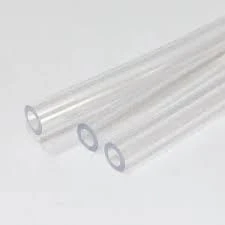Noy . 16, 2024 04:32 Back to list
hdpe agriculture pipe
The Role of HDPE Agriculture Pipe in Modern Farming
In the ever-evolving field of agriculture, innovative technologies and materials are continually being introduced to enhance efficiency and productivity. One such advancement is the use of High-Density Polyethylene (HDPE) pipes, which have gained significant popularity in irrigation systems across the globe. This article explores the benefits and applications of HDPE agriculture pipes, underscoring their importance in modern farming practices.
What is HDPE?
High-Density Polyethylene, commonly referred to as HDPE, is a type of thermoplastic made from petroleum. It is characterized by its high-density molecular structure, which gives it remarkable strength and durability. HDPE pipes are manufactured through a process that ensures they are resistant to various environmental factors, making them an ideal choice for agricultural applications. Their inherent properties include excellent chemical resistance, low moisture absorption, and high durability, making them suitable for both surface and subsurface irrigation systems.
Advantages of HDPE Agriculture Pipes
1. Durability One of the primary benefits of HDPE pipes is their exceptional durability. Unlike traditional materials such as steel or concrete, HDPE is less susceptible to corrosion and deterioration. This longevity translates into lower maintenance costs and extended service life for irrigation systems.
2. Flexibility HDPE pipes are highly flexible, allowing them to be used in a variety of landscapes and terrains. This flexibility means they can be easily installed in areas where conventional materials may face challenges, such as rocky or uneven grounds.
3. Cost-Effectiveness Although the initial investment in HDPE pipes may be higher than traditional materials, the long-term savings are substantial. The reduced maintenance needs and improved system longevity contribute to lower overall operational costs.
4. Lightweight Compared to other piping materials, HDPE is significantly lighter, making transport and installation easier. Farmers can reduce labor costs and time spent on installation, allowing for quicker project completion.
5. Environmental Impact The manufacturing and use of HDPE pipes have a lower environmental impact compared to alternative materials. They are recyclable and can be repurposed, aligning with sustainability goals in modern agriculture.
Applications in Agriculture
HDPE agriculture pipes are versatile and can be used in various applications
hdpe agriculture pipe

- Drip Irrigation Drip irrigation systems benefit greatly from HDPE pipes, as they help deliver water directly to the root zone of plants, minimizing water waste and maximizing efficiency. This method is particularly beneficial in arid areas where water conservation is crucial.
- Stormwater Management HDPE pipes play a significant role in managing stormwater runoff. They can be utilized in drainage systems to reduce soil erosion and prevent flooding, thus protecting crops and farmland.
- Subsurface Irrigation For deep-rooted crops requiring consistent moisture, subsurface irrigation using HDPE pipes can be highly effective. This method conserves water and reduces evaporation, ensuring that crops receive adequate hydration.
- Hydroponics In hydroponic farming, where plants are grown without soil, HDPE pipes serve as an essential component for circulating nutrient-rich solution. Their resistance to algae growth further enhances their utility in these systems.
Challenges and Considerations
Despite the numerous advantages, farmers should consider a few challenges when implementing HDPE agriculture pipes
- Installation Costs While they save on maintenance, the initial setup costs can be significant. Farmers must evaluate their budget and project scope to determine if HDPE is the right choice.
- Temperature Sensitivity HDPE pipes can be susceptible to temperature changes. Extreme heat may lead to deformation, while extreme cold can make the material brittle. Proper handling and installation are crucial.
- Potential for Biofilm Growth In systems where water sits stagnant, biofilm can form inside pipes, leading to clogs. Regular maintenance and flushing of systems can help mitigate this issue.
Conclusion
HDPE agriculture pipes represent a significant advancement in farming technology, providing numerous benefits that enhance efficiency, sustainability, and productivity. As the agricultural sector continues to adapt to new challenges, HDPE pipes are likely to play a central role in shaping the future of irrigation and water management practices. By understanding and utilizing the advantages of HDPE, farmers can make informed decisions that support both their operational needs and environmental stewardship.
-
Durable PP Rigid Sheet: Lightweight, Chemical Resistant Solutions
NewsAug.21,2025
-
PVC Grey Sheet for Extraction: Chemical Resistant & Durable
NewsAug.19,2025
-
Durable PVC Pipe Fittings for Plumbing & Irrigation Needs
NewsAug.18,2025
-
HDPE Steel Belt Reinforced Spiral Corrugated Pipe | High Strength
NewsAug.17,2025
-
HDPE Pipe Fittings: Durable, Leak-Proof Solutions
NewsAug.16,2025
-
Premium CPVC Sheet: High-Temp & Chemical Resistant Solutions
NewsAug.15,2025

